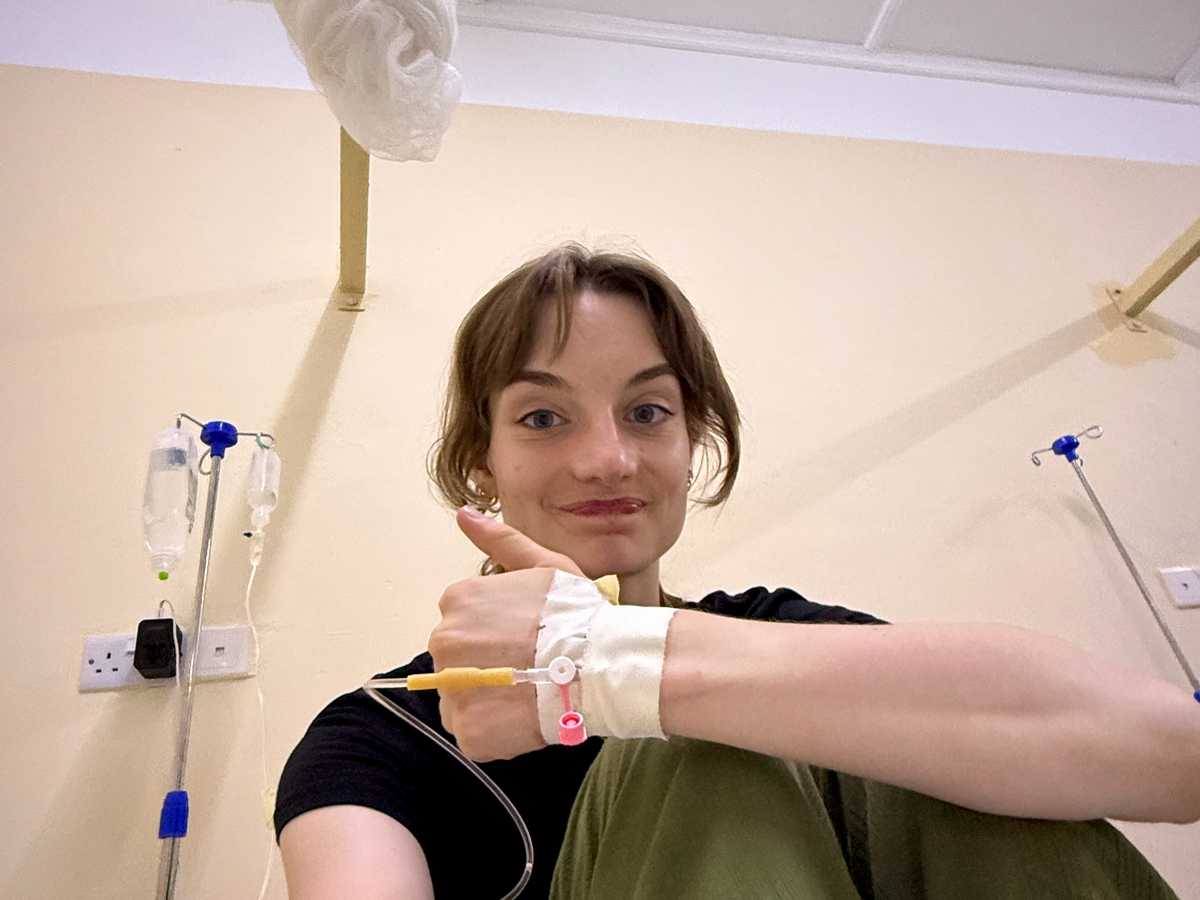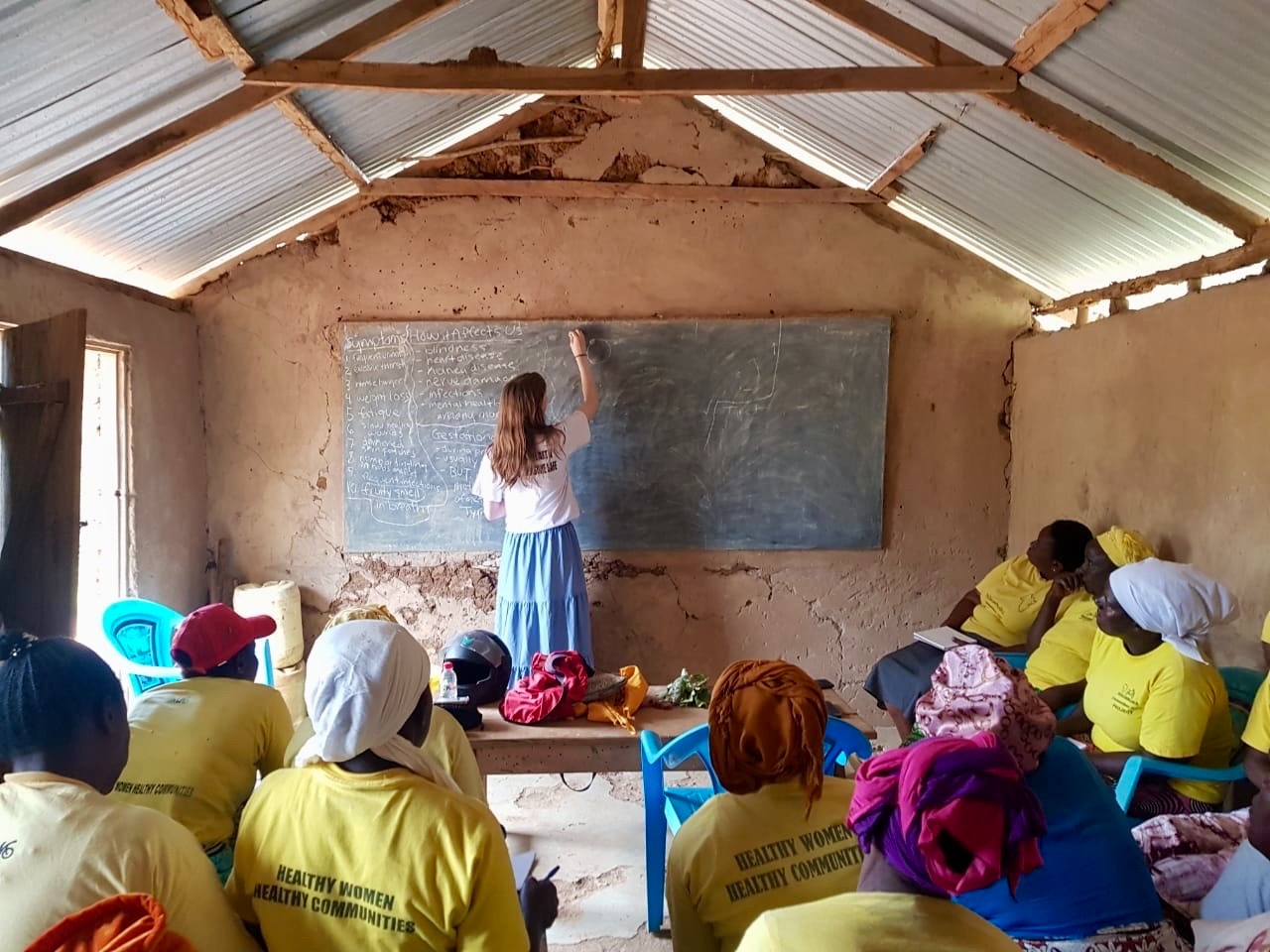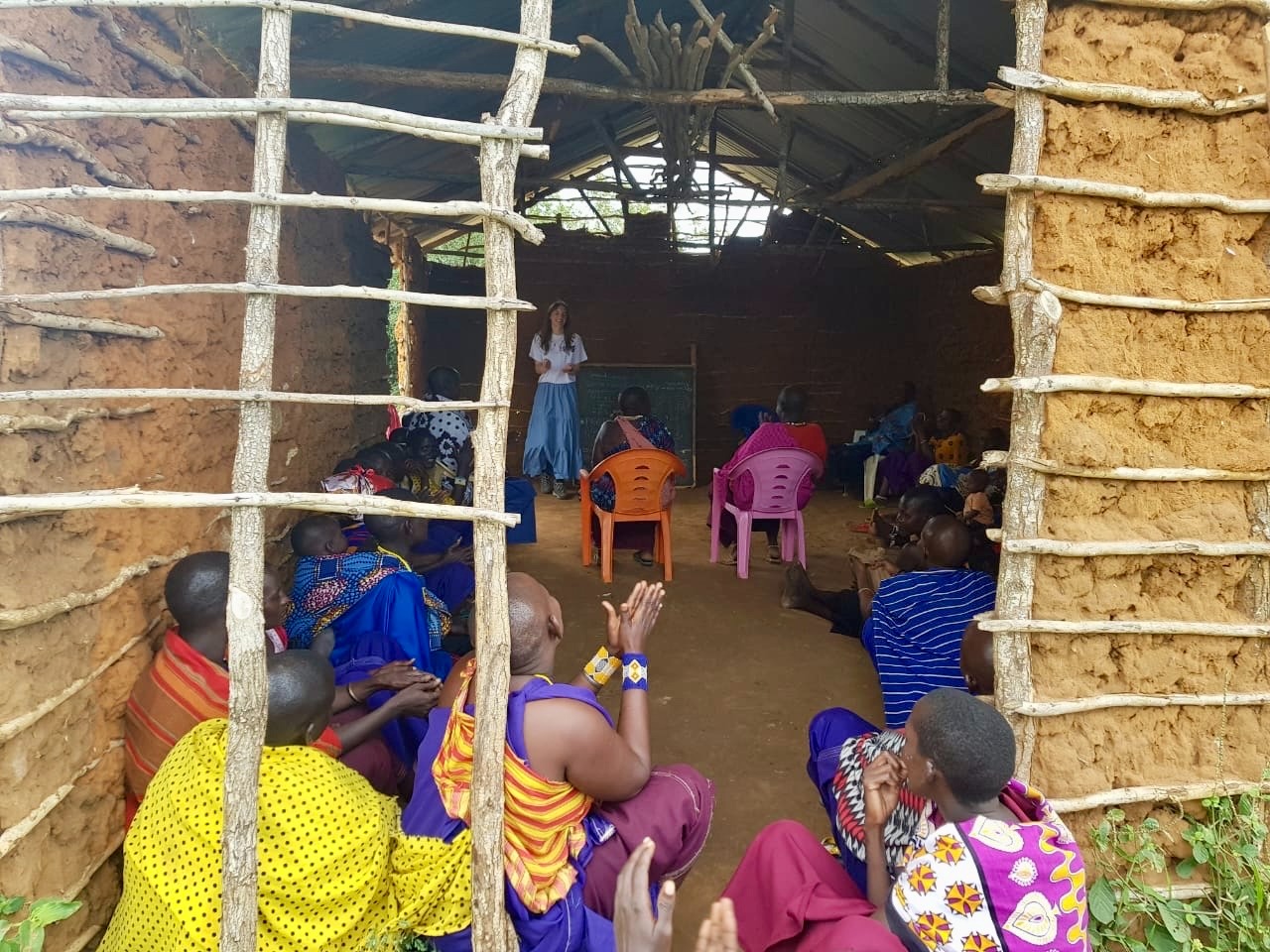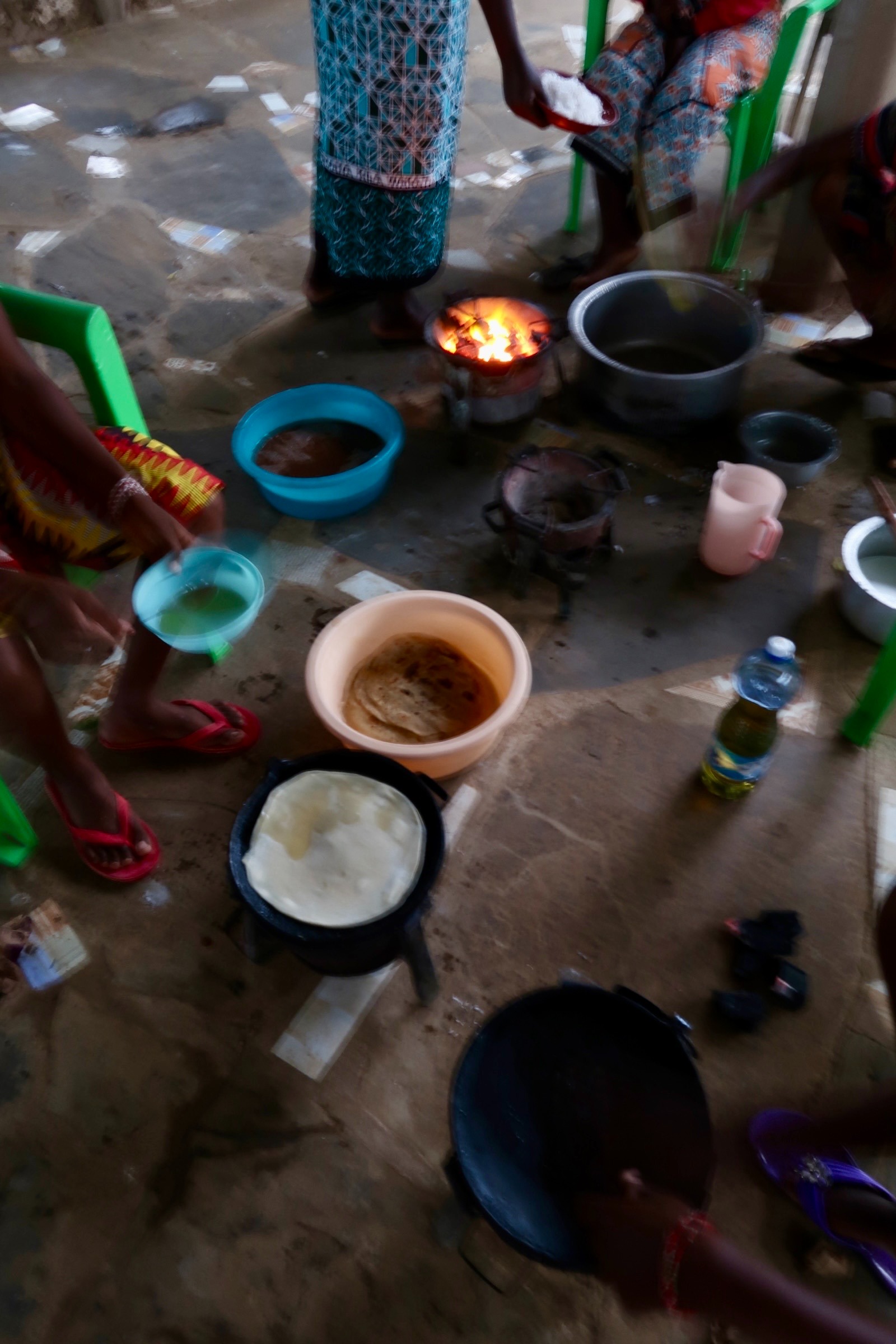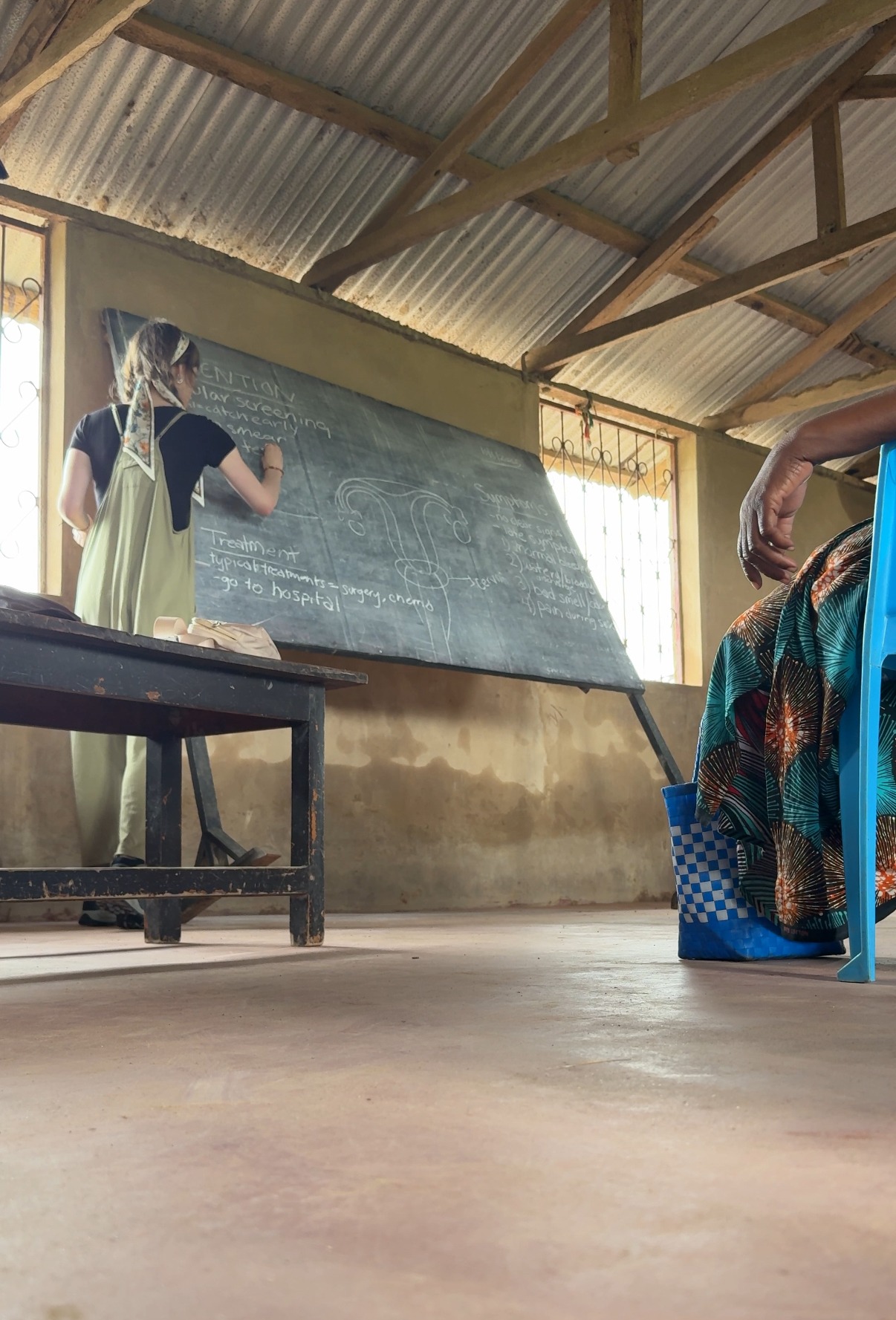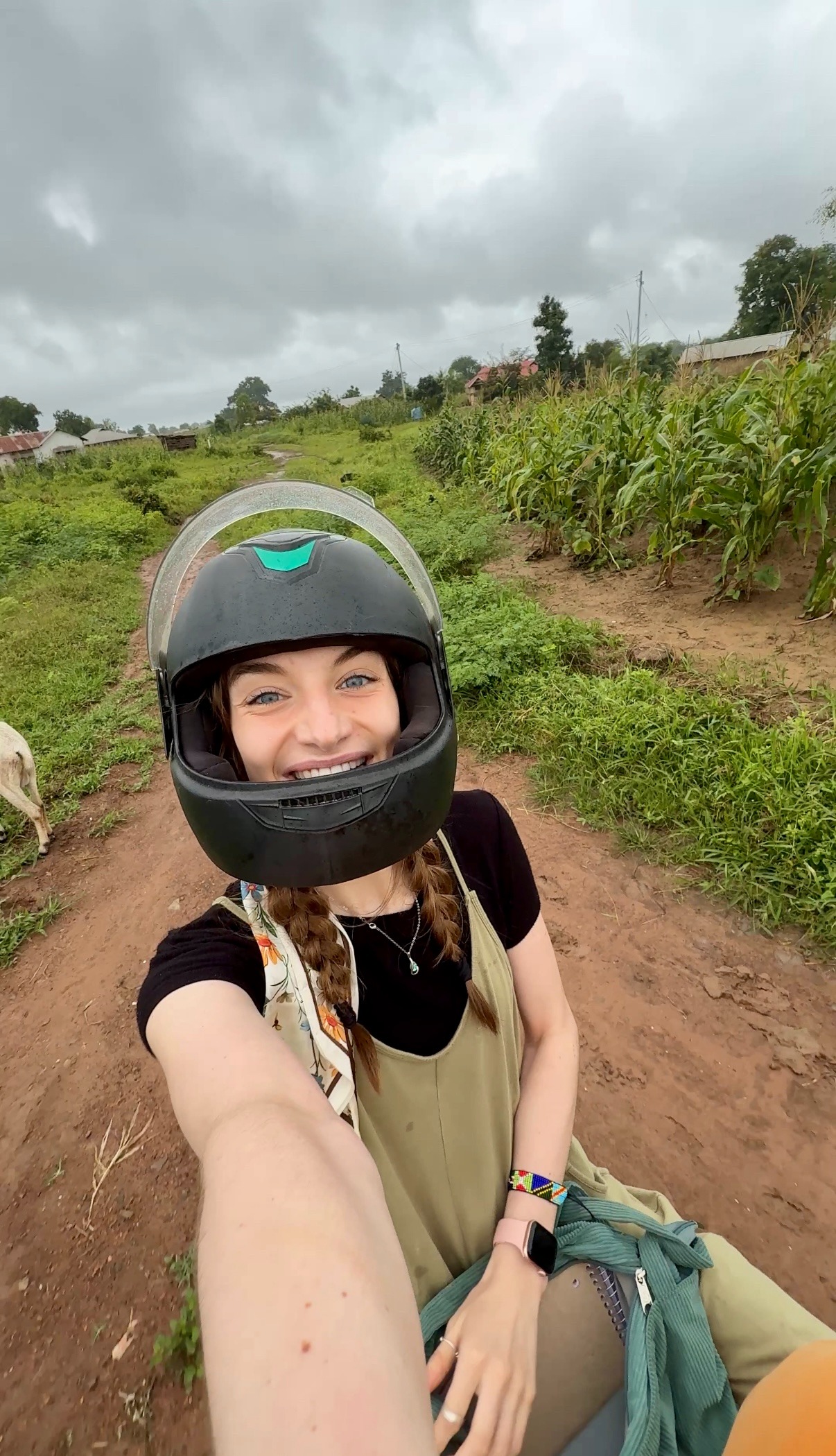STORY + RESOURCES:
Hi, I'm Jess and I was hospitalized with Malaria in Rural Kenya this summer during an internship. But this isn't about me. My birthday wish today is to help my students more easily get the care I had access to:
This summer, I was a Community Health Intern at the Nikumbuke Project in Lunga Lunga, Kenya, helping to teach over 1,000 girls and women about health. I got very sick with malaria, and my privilege gave me access to care. Many people don't get that chance.
So for my 22nd birthday, instead of gifts or drinks, I’m asking you to help me build a Health Fund to support Nikumbuke to:
- Cover malaria testing and treatment at the local hospital (about 700 Kenyan shillings or $5)
- Provide bed nets and basic health supplies
- Support transportation costs to care for girls who get sick
Nikumbuke and My Internship
My name is Jess Randall, and I am a senior at University of Wisconsin-Madison majoring in Biology and Global Health. This past summer, I had the honor of being a Health By All Means Intern at the Nikumbuke Project, an incredible grassroots women’s health organization that has been empowering women and addressing gender-based structural violence since 2009. Nikumbuke is women-led and rooted in trust built over years. On-site, they run a tailoring school for adolescent girls, offering vocational training and a place to live. Beyond the classroom, they have over 20 women’s groups across surrounding villages who gather in shared spaces to learn about health, literacy, microfinance, gardening, and their rights.
I lived on-site, adapting to bucket showers, limited electricity, many bugs, and I learned how to make new foods, speak some Swahili, and laughed, danced, and played games with the tailoring students who quickly became like sisters. I learned that health education is never just about information, but about connection, empowerment, and trust as I developed and taught health lessons to tailoring students and women’s groups on various topics like diabetes, cervical cancer, reproductive health, exercise, mental health, and other topics like English and math skills. Each afternoon, I rode on pikipiki (or motorbike) down dirt roads to reach the incredible women's groups, some of which had over 70 women present - most of whom were farmers, tailors, or businesswomen, all eager to support each other and learn about improving their health and the health of their communities.
Malaria, hookworms, and h pylori
My biggest challenge came when I got sick with malaria and hookworms and had to be hospitalized. I saw firsthand the disparities in health access - how proximity, resources, and privilege determine whether someone receives care. Lying in that hospital bed, I realized I had the privilege of being treated and recovering, while so many others face barriers that prevent them from accessing the same care. I received care and recovered because of my privilege, yet millions do not, despite malaria being both preventable and treatable.
When people back home hear that I was hospitalized with malaria, they tell me how scary that must have been, how lucky I am to be okay, how sorry they are. And yes, it was scary. But their concern feels misplaced. What should scare them isn’t that I got sick. It’s that I got care - and so many people around the world don’t. This experience highlighted the hypocrisy of a world where malaria is seen as a terrifying tragedy when it happens to someone like me, but an accepted reality when it happens to millions of people who live here.
I didn’t expect how angry, in a way, this experience would make me. It’s not because malaria is untreatable or unpreventable that millions die from it. We have rapid diagnostic tests and treatments. We have insecticide-treated bed nets, and even a vaccine and prophylaxis. And still, one child dies from malaria every minute - the vast majority in Sub-Saharan Africa. Not because we can’t stop it from killing, but because globally, we haven’t prioritized the lives of the people it impacts most.
I’ve spent years studying medicine and global health systems abroad - listening to patients and community leaders about access to care, learning about cost barriers, and studying the harms of systems built on inequality, largely caused by colonialism and corruption. But getting malaria taught me more than years of studying ever could and reminded me why I was there in the first place - to learn, to develop empathy, and to witness global health not just as a field of study, but as a lived reality.
__
In the meantime, I’ll be sharing more about my time interning and the many lessons I learned about resilience, community, why there’s no such thing as a “global citizen,” and about the dangers of voluntourism and more.
Here are some resources I would highly recommend exploring:
- “American Students Abroad Can’t Be Global Citizens,” Talya Zemach-Bersin, Chronicle of Higher Education, 2008, Vol. 54 Issue 26, pA34-A34 (https://www.chronicle.com/article/american-students-abroad-cant-be-global-citizens/)
- “Paradoxes of Aid Work” Book by Silke Roth
- "The Lived Experience of Global Public Health Practice: A Phenomenological Account of Women Graduate Students" Vol 21 No 1, Health and Human Rights Journal, Mcauliffe et al, (https://content.sph.harvard.edu/wwwhsph/sites/2469/2019/07/Mcauliffe.pdf)
- Why we need to end the era of orphanages, TED Talk by Tara Winkler (https://www.ted.com/talks/tara_winkler_why_we_need_to_end_the_era_of_orphanages?language=en)
- “The Danger of a Single Story”, TED Talk by Chimamanda Adichie (https://www.ted.com/talks/chimamanda_ngozi_adichie_the_danger_of_a_single_story)
- “Why There is No Such Thing as Global Citizenship”, Eric Liu, The Atlantic (2012) (https://wvcglobalc.wordpress.com/2015/11/)
- “Africa for Norway” video by SAIH Norway (https://www.youtube.com/watch?v=oJLqyuxm96k)
Thank you for giving to something that matters.
Jess
Organizer
Jessica Randall
Organizer
Madison, WI
